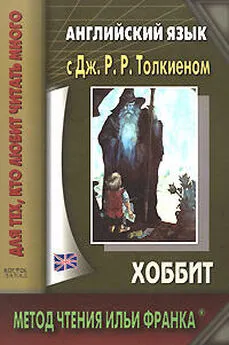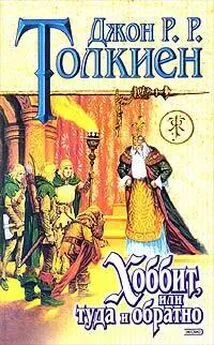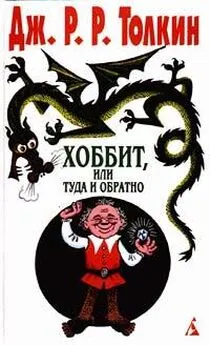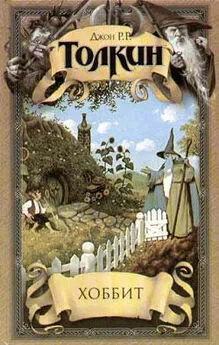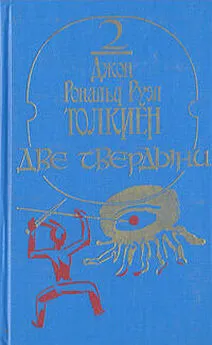Джон Толкиен - Английский язык с Дж. Р. Р. Толкиеном. Хоббит
- Название:Английский язык с Дж. Р. Р. Толкиеном. Хоббит
- Автор:
- Жанр:
- Издательство:АСТ, Восток-Запад
- Год:2008
- Город:Москва
- ISBN:978-5-17-048593-2, 978-5-478-00597-9
- Рейтинг:
- Избранное:Добавить в избранное
-
Отзывы:
-
Ваша оценка:
Джон Толкиен - Английский язык с Дж. Р. Р. Толкиеном. Хоббит краткое содержание
В книге предлагается произведение на английском языке Джона Р. Р. Толкиена «Хоббит», адаптированное (без упрощения текста оригинала) по методу Ильи Франка. Уникальность метода заключается в том, что запоминание слов и выражений происходит за счет их повторяемости, без заучивания и необходимости использовать словарь.
Пособие способствует эффективному освоению языка, может служить дополнением к учебной программе.
Предназначено для студентов, для изучающих английский язык самостоятельно, а также для всех интересующихся английской культурой.
Пособие подготовила Ольга Ламонова.
Английский язык с Дж. Р. Р. Толкиеном. Хоббит - читать онлайн бесплатно полную версию (весь текст целиком)
Интервал:
Закладка:
huge [hju: dʒ] treasure [ˈtreʒǝ] enemy [ˈenǝmɪ]
In a great cave some miles within the edge of Mirkwood on its eastern side there lived at this time their greatest king. Before his huge doors of stone a river ran out of the heights of the forest and flowed on and out into the marshes at the feet of the high wooded lands. This great cave, from which countless smaller ones opened out on every side, wound far underground and had many passages and wide halls; but it was lighter and more wholesome than any goblin-dwelling, and neither so deep nor so dangerous. In fact the subjects of the king mostly lived and hunted in the open woods, and had houses or huts on the ground and in the branches. The beeches were their favourite trees. The king’s cave was his palace, and the strong place of his treasure, and the fortress of his people against their enemies.
It was also the dungeon of his prisoners (это также была и подземная тюрьма для его узников). So to the cave they dragged Thorin (итак, Торина притащили в эту пещеру) — not too gently (не очень то вежливо; gently — мягко, тихо, спокойно ) for they did not love dwarves (так как они не любят гномов), and thought he was an enemy (и думали, что он враг). In ancient days (в стародавние времена; ancient — старинный, древний ) they had had wars with some of the dwarves (у них были войны с некоторыми гномами), whom they accused of stealing their treasure (которых они обвиняли в краже их сокровищ). It is only fair to say (будет честным сказать) that the dwarves gave a different account (что гномы излагали обстоятельства по другому; to give an account of smth. — делать отчет о чем-либо, описывать или объяснять что-либо ), and said that they only took (и говорили, что они только забрали то) what was their due (что им причиталось; due — должное, то, что причитается ), for the elf-king had bargained with them (так как король эльфов заключил с ними сделку) to shape his raw gold and silver (на изготовление /изделий/ из необработанного золота и серебра; toshape—придаватьформу, создавать; raw—сырой, необработанный, грубый ), and had afterwards refused to give them their pay (и впоследствии отказался заплатить: «отдать плату» им). If the elf-king had a weakness (если у короля эльфов и была слабость) it was for treasure (то эта /слабость/ была к сокровищам), especially for silver and white gems (особенно к серебру и белым драгоценным камням); and though his hoard was rich (и, хотя его запасы были неисчерпаемы; rich — богатый, ценный, изобилующий ), he was ever eager for more (он всегда страстно стремился к еще большему), since he had not yet (потому, что у него все еще не было) as great a treasure (таких же огромных сокровищ) as other elf-lords of old (как у других повелителей эльфов в старые времена). His people neither mined (его народ не работал в рудниках) nor worked metals or jewels (и не работал с металлами или драгоценными камнями), nor did they bother much with trade (они также не уделяли много времени торговле; to bother — надоедать, беспокоить; беспокоиться, хлопотать ) or with tilling the earth (или возделыванию земли; to till — обрабатывать, пахать землю ). All this was well known to every dwarf (все это было хорошо известно каждому гному), though Thorin’s family had had nothing to do with the old quarrel (хотя семья Торина не имела ничего общего с этой старой ссорой) I have spoken of (о которой я говорил). Consequently Thorin was angry (поэтому: «следовательно» Торин рассердился) at their treatment of him (на их обращение с ним), when they took their spell off him (когда они сняли с него свои чары) and he came to his senses (и он пришел в себя); and also he was determined (и он также был решительно настроен) that no word of gold or jewels (что ни одно слово о золоте или драгоценных камнях) should be dragged out of him (из него не вытащат: «не будет вытащено из него»; to drag — тащить, волочить, подгребать ).
dungeon [ˈdʌndʒǝn] accused [ǝˈkju: zd] due [dju: ] bargain [ˈbɑ: ɡɪn] hoard [hɔ: d] tilling [ˈtɪlɪŋ] consequently [ˈkɔnsɪkwǝntlɪ]
It was also the dungeon of his prisoners. So to the cave they dragged Thorin — not too gently, for they did not love dwarves, and thought he was an enemy. In ancient days they had had wars with some of the dwarves, whom they accused of stealing their treasure. It is only fair to say that the dwarves gave a different account, and said that they only took what was their due, for the elf — king had bargained with them to shape his raw gold and silver, and had afterwards refused to give them their pay. If the elf-king had a weakness it was for treasure, especially for silver and white gems; and though his hoard was rich, he was ever eager for more, since he had not yet as great a treasure as other elf-lords of old. His people neither mined nor worked metals or jewels, nor did they bother much with trade or with tilling the earth. All this was well known to every dwarf, though Thorin’s family had had nothing to do with the old quarrel I have spoken of. Consequently Thorin was angry at their treatment of him, when they took their spell off him and he came to his senses; and also he was determined that no word of gold or jewels should be dragged out of him.
The king looked sternly on Thorin (король сурово посмотрел на Торина), when he was brought before him (когда тот предстал перед ним: «когда его привели пред него»), and asked him many questions (и задал ему много вопросов). But Thorin would only say (но Торин говорил только) that he was starving (что он умирает с голоду).
“Why did you and your folk (почему вы и ваши люди) three times try to attack my people (три раза пытались напасть на моих людей) at their merrymaking (когда они веселились; to merrymake — веселиться, пировать )?” asked the king (спросил король).
“We did not attack them (мы не нападали на них), ” answered Thorin (ответил Торин); “we came to beg (мы пришли, чтобы просить /еды/), because we were starving (потому, что мы умирали с голода). ”
“Where are your friends now (где же сейчас ваши друзья), and what are they doing (и что они делают)?”
“I don’t know (я не знаю), but I expect starving in the forest (но думаю, что они умирают с голоду в лесу). ”
“What were you doing in the forest (что вы делали в лесу)?”
“Looking for food and drink (искали еду и питье), because we were starving (потому что мы умирали с голоду). ”
“But what brought you into the forest at all (ну а что вообще привело вас в этот лес)?” asked the king angrily (спросил король рассерженно).
merry-making [ˈmerɪˌ meɪkɪŋ] starve [stɑ: v] angrily [ˈæŋɡrɪlɪ]
The king looked sternly on Thorin, when he was brought before him, and asked him many questions. But Thorin would only say that he was starving. “Why did you and your folk three times try to attack my people at their merrymaking?” asked the king.
“We did not attack them, ” answered Thorin; “we came to beg, because we were starving. ”
“Where are your friends now, and what are they doing?” “I don’t know, but I expect starving in the forest. ”
“What were you doing in the forest?”
“Looking for food and drink, because we were starving. ”
“But what brought you into the forest at all?” asked the king angrily.
At that Thorin shut his mouth (на этом Торин закрыл рот) and would not say another word (и не захотел больше говорить ни слова).
“Very well (очень хорошо)!” said the king. “Take him away (уведите его) and keep him safe (и надежно заприте его; to keep — держать, хранить ), until he feels inclined to tell the truth (пока он не почувствует потребность сказать правду; inclined — наклонный; проявляющий склонность ), even if he waits a hundred years (даже если он будет ждать сто лет). ”
Then the elves put thongs on him (затем эльфы связали его ремнями: «наложили ремни на него»; thong — ремень, плеть ), and shut him in one of the inmost caves (и закрыли его в одной из самых отдаленных пещер; inmost — глубочайший, находящийся глубоко внутри ) with strong wooden doors (с крепкими деревянными дверями), and left him (и оставили его). They gave him food and drink (они дали ему еды и питья), plenty of both (большое количество и того и другого), if not very fine (если и не очень изысканных); for Wood — elves were not goblins (так как Лесные эльфы — это вам не гоблины), and were reasonably well-behaved (и разумно благонравные: «хорошо ведущие себя»; to behave — вести себя, поступать ) even to their worst enemies (даже и с собственными наихудшими врагами), when they captured them (когда они их брали в плен; to capture — взять в плен, поймать, захватить ). The giant spiders (гигантские пауки) were the only living things (были единственными живыми существами) that they had no mercy upon (к которым они не имели жалости; mercy — милосердие, сострадание ).
There in the king’s dungeon poor Thorin lay (в подземной тюрьме короля бедный Торин лежал); and after he had got over his thankfulness (когда он покончил со своей благодарностью; to get over — закончить, разделаться ) for bread and meat and water (за хлеб, и мясо, и воду), he began to wonder (он начал размышлять/задаваться вопросом) what had become of his unfortunate friends (о том, что же случилось с его неудачливыми друзьями). It was not very long before he discovered (прошло не очень много времени, прежде чем он это узнал; to discover — обнаруживать ); but that belongs to the next chapter (но это уже относится к следующей главе; to belong — принадлежать, быть частью ) and the beginning of another adventure (и началу другого приключения) in which the hobbit again showed his usefulness (в котором хоббит снова показал свою полезность).
Читать дальшеИнтервал:
Закладка:
